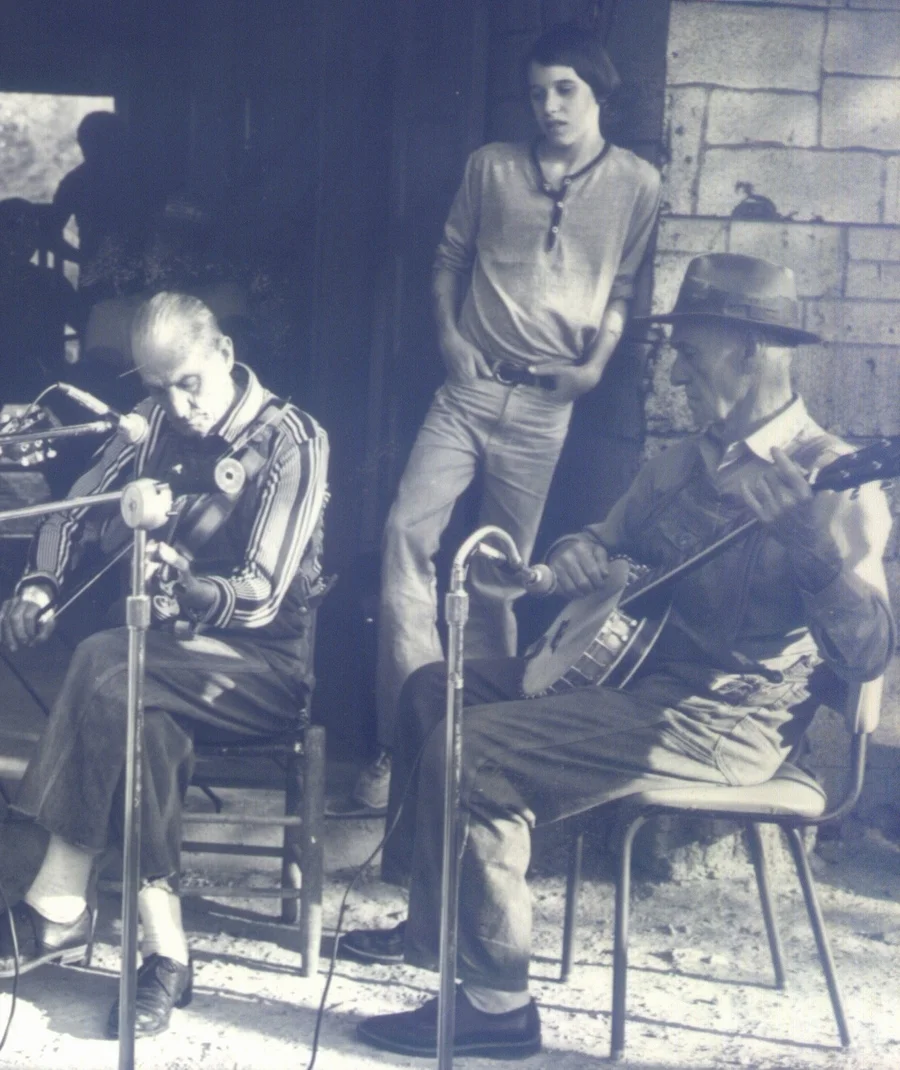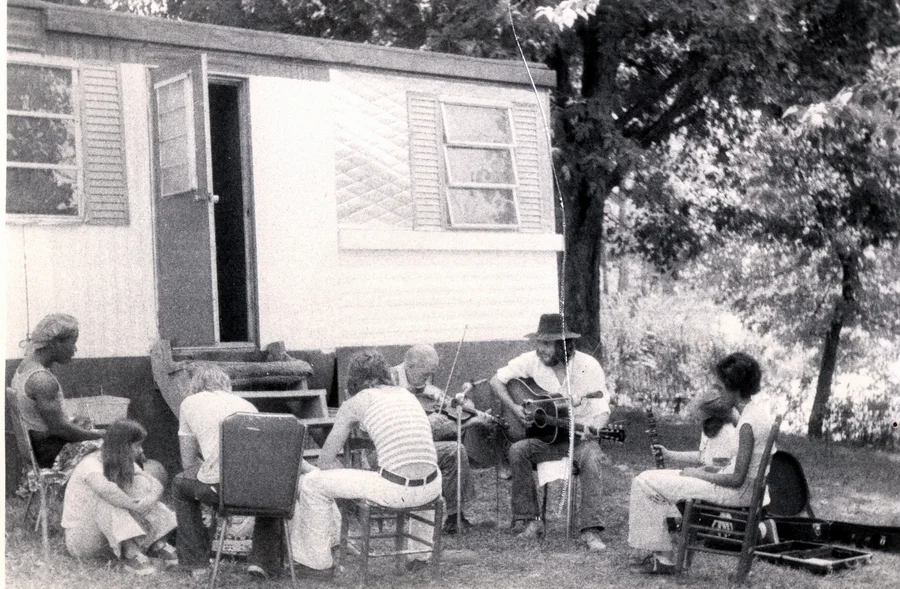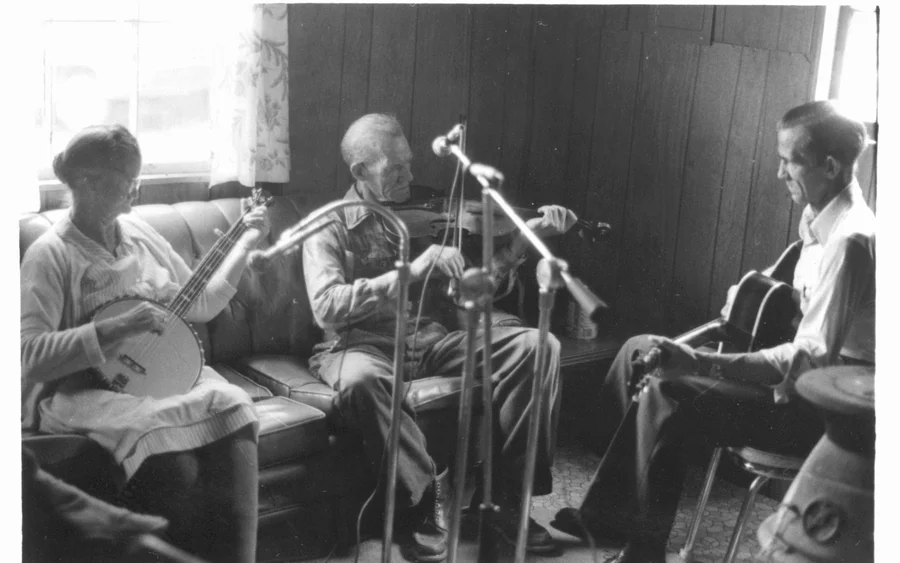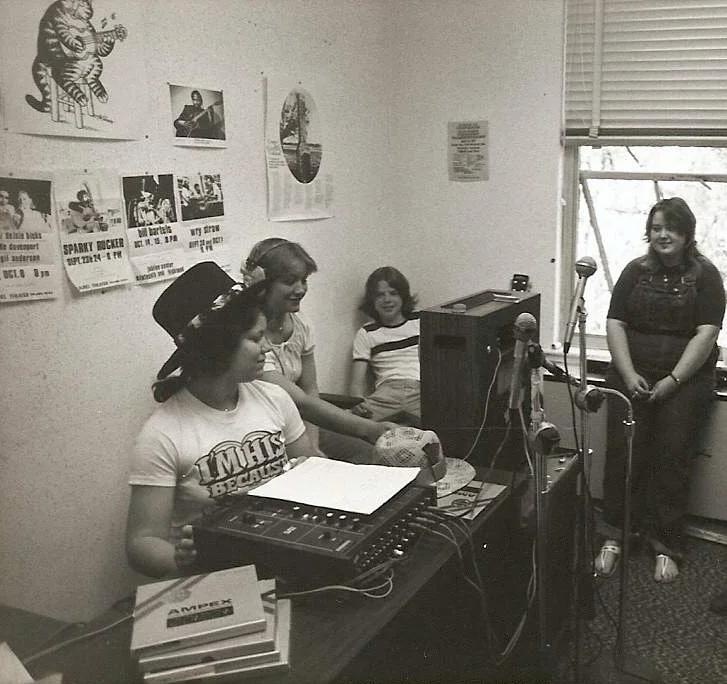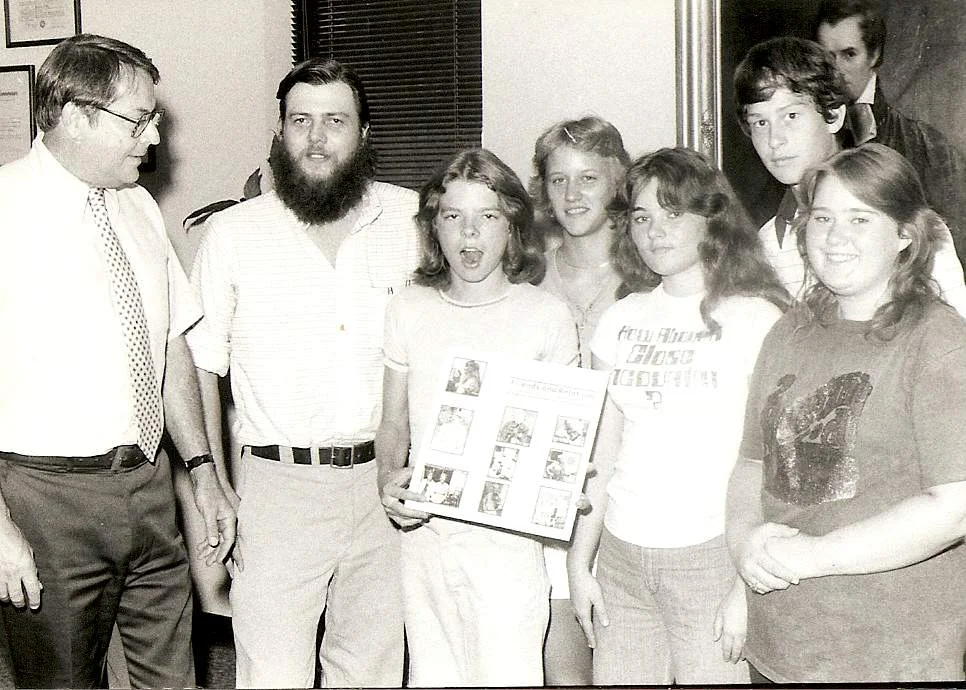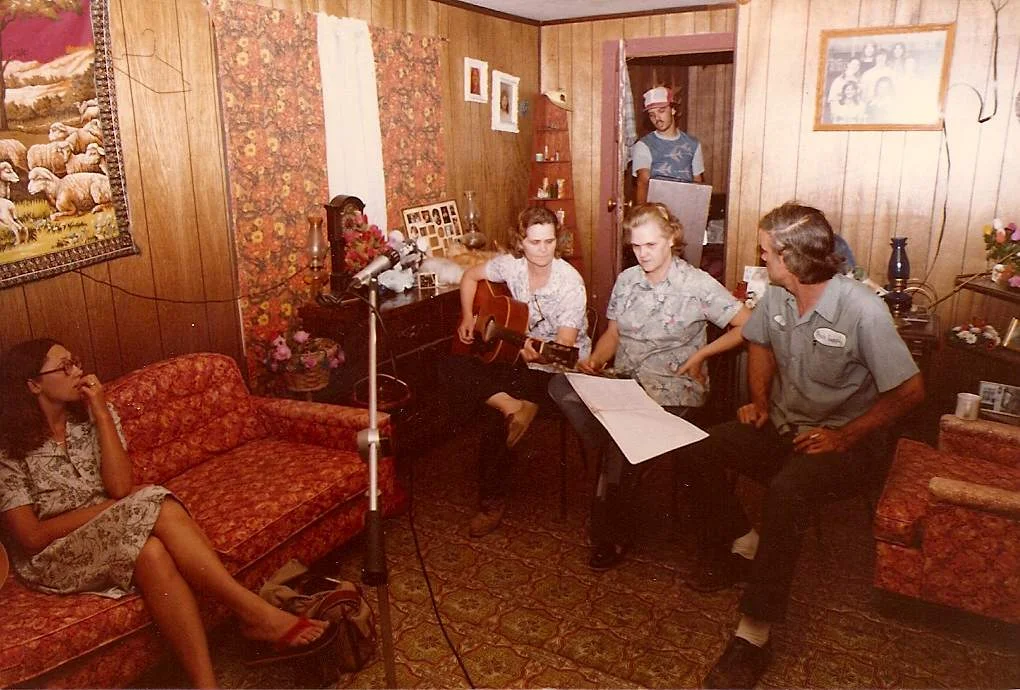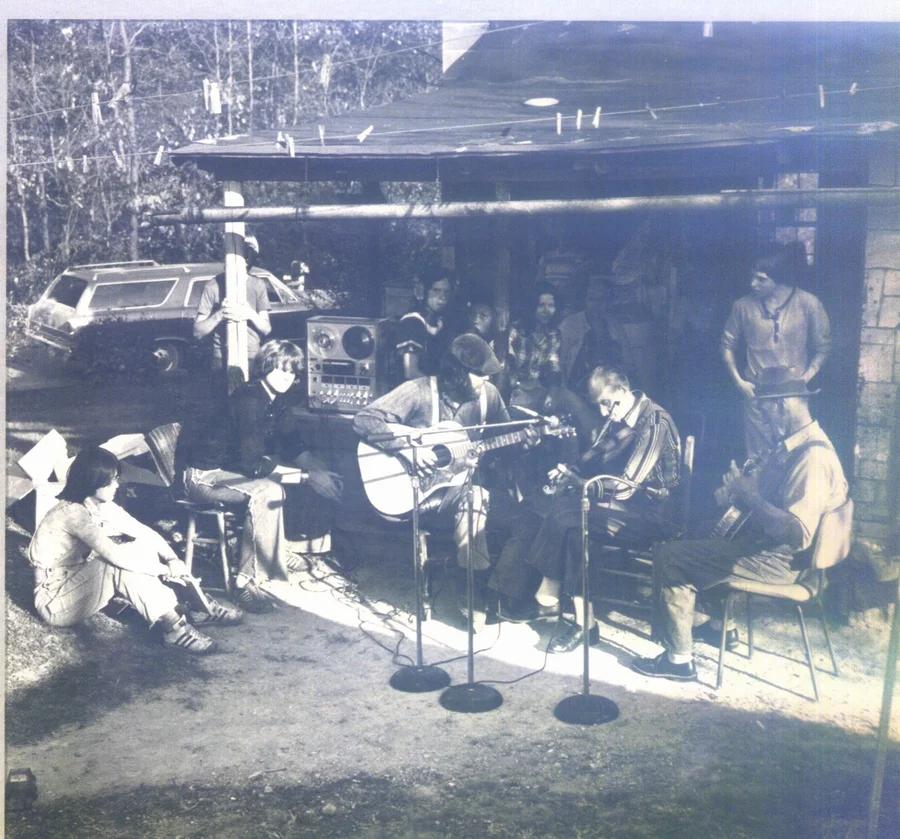
Pine Breeze Recordings
Teenagers at mental health institute made field recordings of traditional mountain music in late 70s and early 80s.
Ron Williams
was fresh out of college in 1975, when he started working at the Pine Breeze Center as a teacher and counselor. Pine Breeze was a residential mental health institute for youth, located on Stringer's Ridge from 1968 to 1982. Part of Williams' job was supervising the kids in the dormitory.
“I didn't want to supervise mayhem and chaos in the evening,” Williams said.
So, Williams thought of an activity that would keep the kids busy and involved his own interest in old-time music. He'd load up a van with teenagers and a reel-to-reel recorder, and head out to Chattanooga's rural surroundings to make field recordings of traditional musicians.
Williams had gotten interested in old-time music in college. Old-time music from Tennessee is traditionally played on the fiddle, banjo, and guitar. Old-time predates bluegrass, and is inspired by Scotch Irish fiddle tunes, ballads, and rhythmic African American banjo techniques, Williams says.
Williams found most of the musicians they recorded simply by word of mouth, in communities in Soddy Daisy, Flat Top Mountain, Manchester, and all around the county and region.
“We just would roam around and stop at stores on the mountain and some places, and say, 'do you know somebody?' and follow up the leads,” Williams said.
Often, one musician would lead to another. Williams and the students focused on recording the music, but they also captured some chit-chat, tall tales, and jokes. One of the musicians they recorded many times, Eldia Barbee, would feed the students a meal after a recording session and play a square dance for them at his home.
“Some of the songs had never been recorded, or were very obscure,” Williams says.
One song that Williams believes was never recorded before the Pine Breeze students is called “Old Chattanooga.” (listen above) The students taped Blaine Smith, Florie Stewart, and Willie Branan performing the piece. Because of their original recording of the song, it is now “one of the most popular and well-known old-time tunes because of YouTube and social media,” Williams says.
Some of the people they recorded had performed as early as the 1920s. Most of the musicians did not make a living from playing music. Instead, they played at Chattanooga's old-time fiddle contests, square dances, and community events.
“We recorded the last of the really authentic old-timers that learned a lot of their repertoire in the oral tradition, not off records and radio,” Williams says.
"We recorded the last of the really authentic old-timers"
You can hear the difference in music learned in the oral tradition, versus music learned from a recording. Lyrics may vary from artist to artist, and the vocals might be out of key or “sliding.”
“You can't play those notes on the piano because they're not there,” Williams says.
After recording, Williams and the students would take the tapes back to the Pine Breeze Center and cut them into records. Their first LP, “The Eldia Barbee Tapes,” was reviewed in High Fidelity Magazine. After that, they got orders from all over the world. They used the money to keep funding the project, and they released eight records from 1976 to 1981. The students did most of the work, from making the recordings, to creating the records, to taking photographs and making sales. Few of the students were musicians themselves.
“The kids didn't necessarily like the music, but they liked getting away. They liked to travel,” Williams says.
Twice, Williams took a group of students to Washington D.C. for the project. Once they attended a folk festival, and the other time they met with the Library of Congress, which now houses all of the recordings.
The project ended in 1981, just before the Pine Breeze Center closed and the patients were transferred to the Moccasin Bend Mental Health Institute. Years later, in 2005, Williams got a grant from the Tennessee Arts Commission to remaster the recordings and create a CD compilation, called “The Pine Breeze Recordings.” The album can still be purchased through Jubilee Community Arts in Knoxville.

